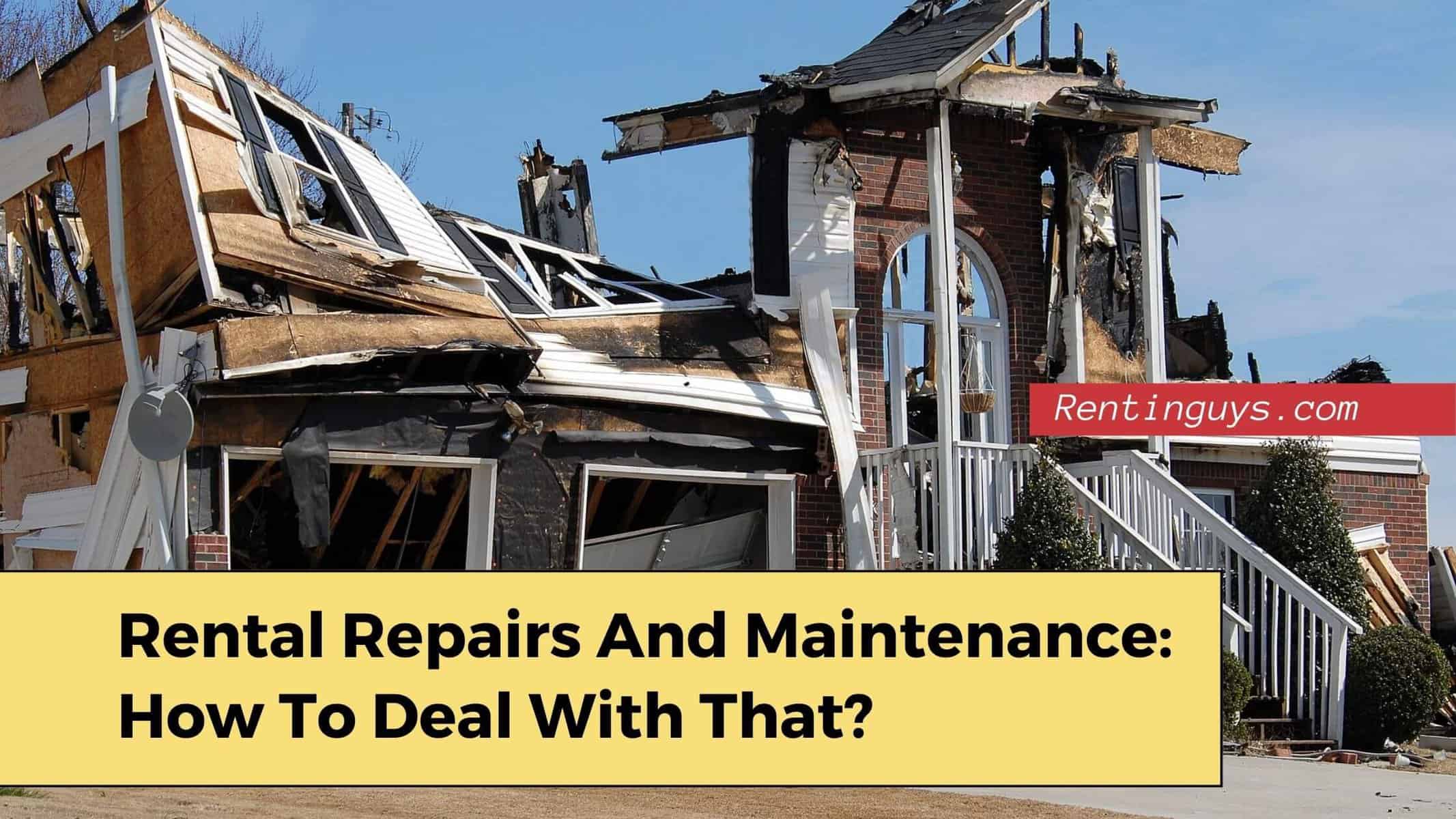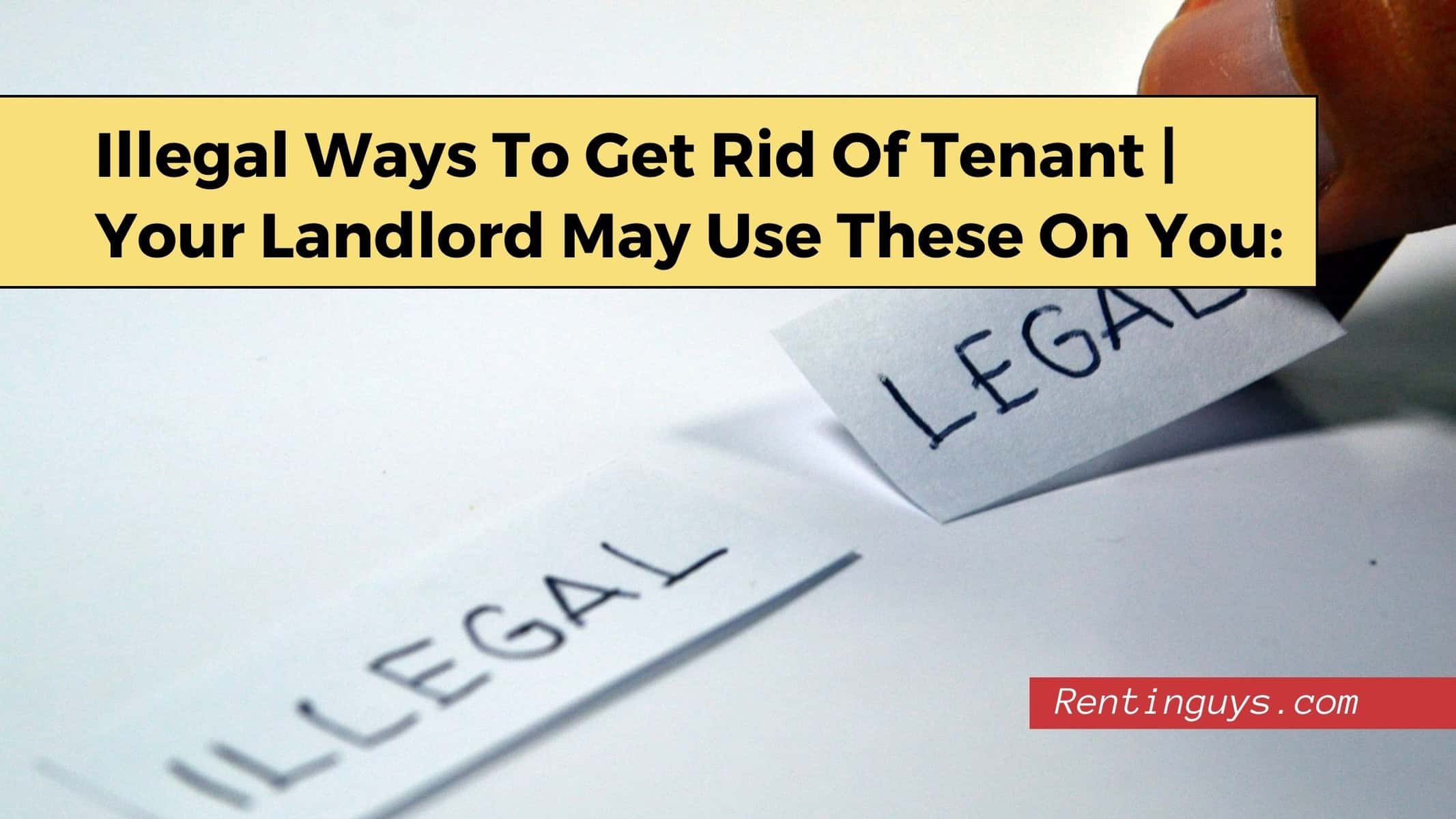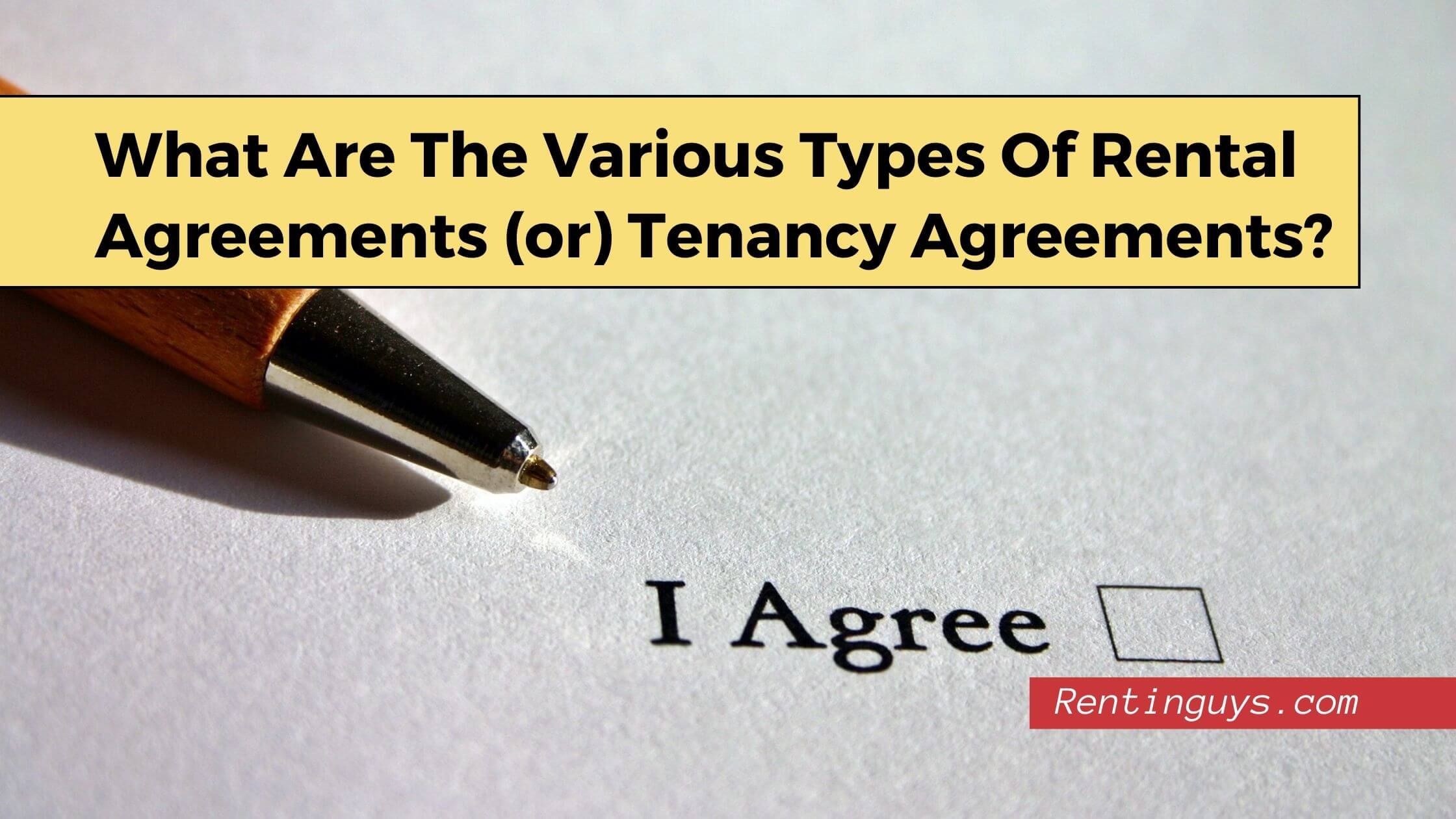The air conditioning system broke down, who will fix it?
The house’s surroundings are not clean, who is to be responsible for their upkeep?
The water pipe burst today morning. How to get it repaired?
Who has to take care of the repairs and maintenance of any rental property: the landlord or the tenant?
This is often the primary point of discussion between a tenant and their landlords. There is no clear-cut answer to this issue and one can always find a grey area when fixing responsibility for repairs and maintenance.
The federal and state housing laws and the tenancy agreement together can help you to determine, who is to be responsible for repairs and maintenance of the rental property.
The lease agreement must clearly state the responsibilities of both the landlord and the tenant with regard to rental repairs and maintenance.
“Who is to be responsible for what?”
This should be mentioned clearly to avoid disputes and legal issues later.
Landlord maintenance responsibilities
The landlord has to maintain the property in a safe and hospitable condition. Nothing mentioned in the lease document can alter this responsibility.
The landlord is responsible to undertake all the essential repair and maintenance activities that are required to keep the house in a safe and hospitable condition.
Landlord maintenance responsibilities include
- The structure of the home. For example, roof, foundation, guttering, etc.
- Exteriors of the property including walls, doors, windows, external pipes, etc.
- Common areas of a building such as stairs, lift, lobbies
- Plumbing fixtures such as wash basins, toilets, sinks, baths, etc.
- Heating and cooling equipment such as boilers, radiators, heaters, and coolers
- Water and gas pipes
- Electrical wiring, sockets, light fittings
- Appliances provided by the landlords
- Safety equipment: smoke detectors, fire alarms, carbon monoxide alarms, etc.
- To keep the house free from pests such as cockroaches, bed bugs, termites, rodents, etc.
- Changing locks when new tenants move in
Tenant maintenance responsibilities
Though the landlord has major responsibilities of repair and maintenance, the responsibility to keep the house in good condition also lies with the tenant.
Tenants must take proper care of their house and be careful not to damage the property through their negligent behavior.
Tenant maintenance responsibilities include
- Changing the lightbulbs, fuses, and plugs for lights and appliances.
- Not blocking the sinks and basins and unblocking them whenever required.
- Keeping the property clean (interior and exterior).
- Using the recommended products for dishwasher, washing machine, etc.
- Replacing batteries of the carbon monoxide and smoke alarms.
- General lawn maintenance such as mowing grass and cleaning the garden
- Cleaning the windows to keep them free of condensation.
- Ensuring the furnishings such as curtains, sofas, etc. are clean and well maintained.
- Not causing wilful damage to the property, furnishings, and fixtures.
To put it in simple words, the tenant is responsible for the small regular jobs to keep the house clean, safe, and habitable.
If the job requires the services of a professional, the landlord is responsible for it.
How to report maintenance issues to the landlord?
The landlord is only responsible for the repairs that are brought to his knowledge. You have to report the maintenance or repair issue to the landlord as soon as you notice it.
It is advisable to give a written complaint as written complaints are resolved more quickly than verbal complaints.
The lease document contains details on how to report a maintenance issue. Follow the procedure and keep a record of every letter, email, and other correspondence.
How quickly do landlords have to fix issues?
The landlord must fix the issues in a reasonable period of time. What is a reasonable period depends on the seriousness of the issue.
Sometimes, even a minor repair can affect the structural strength of the building and make it inhospitable or make it non-compliant with the building codes.
In such cases, the landlord must immediately take action within 24 hours. If the issue is not serious, the landlord can address the matter within a reasonable time to avoid further damage.
When you report repairs and maintenance issues to the landlord, you have to provide the landlord access to the house.
The repairmen or the professionals, who come to do the repairs must be given access to inspect the property and carry on the necessary repairs.
However, you can demand a written notice of inspection at least 24 hours prior to the visit.
Can a landlord make a tenant pay for repairs?
The landlord cannot make a tenant pay for repairs that arise from the regular wear and tear of the property. However, if the issue occurs due to the fault of the tenant, then he/she will be liable to pay.
Here are some of the repairs, a tenant can be liable to pay
- Negligent or improper use of appliances provided by the landlord
- Wilful damage
- Damage done by unauthorized guests
- Disabling safety equipment
- Keeping the surroundings unhygienic by not clearing the trash
- Overloading electrical outlets
- Damage by unauthorized pets
- Blocking the sinks, basins, and toilet by flushing inappropriate items
- Not notifying the landlord about repairs and maintenance issues
- Not allowing repairmen and contractors to inspect the property and carry on repairs
What is fair wear and tear in a rental property?
Fair wear and tear of a property is the damage occurring due to regular use.
For example, the carpets tearing or fading over time, door knobs coming out due to regular use, and fading of wall paints, etc.
The landlord cannot hold the tenants liable for fair wear and tear.
When determining whether an issue occurred due to regular wear and tear or damage which is caused by the tenant, the following factors are taken into consideration.
- Extent of damage
- Length of stay in the house
- The character of the building
- Age of the building
- The average life of the concerned furniture or fitting
The landlord is responsible for all the major rental repairs and maintenance.
The landlord/landlady has to undertake the repairs within a reasonable time to maintain the habitability of the house. However, it is the tenant’s responsibility to notify the landlord about the issue.
FAQs on rental repairs and maintenance
1. Is a broken toilet seat wear and tear?
If you live in an old house and the toilets are old, then the broken toilet seat may be due to wear and tear. However, if a new toilet seat is broken it can be deemed as abuse or negligence.
2. Are marks on walls wear and tear?
The answer depends on the extent, size, and the nature of marks. Small cracks on the walls, damp patches, small holes, and other minor marks are considered fair wear and tear.
However, major cracks and holes caused by force, paw marks or scratches of pets, and marks made with pencils are damages.
3. Who is to be responsible for painting landlord or the tenant? Can a landlord charge for a painting?
The landlord is responsible for painting their rental property unless it is otherwise mentioned in the tenancy agreement. The tenant should not paint the property without permission from the landlord.
The landlord cannot charge the tenant for painting or deduct the amount from the security deposit for painting.
The landlord can charge a tenant for painting if the tenant damages the walls beyond normal wear and tear, or paints the walls without permission.
4. Does the landlord have to pay for a hotel during repairs?
The landlord does not have to pay for the hotel during repairs unless the tenancy lease agreement says so.
However, if the repair work is scheduled for a long duration, some landlords may cover reasonable hotel costs for the tenants.
5. How often should a landlord replace carpets?
Carpets generally have a life of 5 years. So it is advisable to change the carpets every 5 to 6 years, depending on the wear and tear. There is no rule stating that the landlord has to change carpets at a fixed time.
6. Can a landlord charge for cleaning?
The landlord can charge the tenant for cleaning if the tenant does not return the property in the same condition as it was when he/she moved in.






